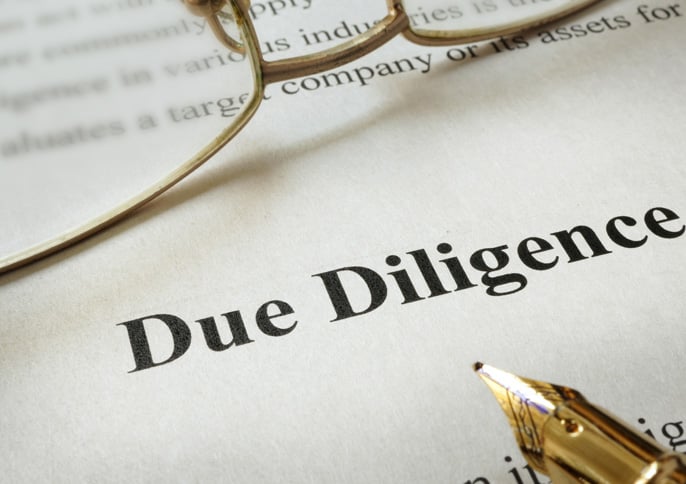As we enter a new financial year, we have a chance to avoid the usual scramble – frantically chasing outstanding invoices, trying to make sense of where your money has actually gone and completing your CPD requirements.
It's a scramble that Gordon Tian, qualified barrister, solicitor, and chartered accountant, has witnessed time and again among his boutique law firm clients. Having built his own successful accountancy practice from scratch while working at KPMG and Ernst & Young, Gordon Tian is well-versed in the most important considerations for lawyers from both a legal practice and accounting stand-point.
We caught up with Gordon to find out how lawyers – from employee to partner - can best get tax ready at the beginning of the new financial year, maximise tax deductions and make the most of their CPD in relation to revenue!
How to approach your financial and tax planning
“Just because you’re employed by someone else doesn’t mean you can’t think like a business owner,” Gordon says. “Get all your billing done before year-end, review and submit all your timesheets. Get expense claims submitted. Generally, give the firm all the information it needs to complete the close of the year-end. Think like a firm owner, because it will prepare you one day to become one.”
If you’re a sole practitioner, Gordon advises to clear out as much WIP as you can.
“Do your billing now,” Gordon says. “Sit for a day and just send out all the bills you can. Interim bills are for the win. Pull out a list of all your outstanding invoices that are beyond your payment terms and chase like hell to get them paid before year-end.”
Need to have those tough conversations? Have them now.
“The end of the financial year is when you need to organise all your expenses. Have you seen a bill from your IT supplier for March yet? Ask them to send it over. Get all your payable invoices in before year-end. For most practitioners, they are deductible for tax even if you haven’t paid them yet, under accruals basis accounting,” Gordon says. “Does your office need a new printer, toner, paper, laptop, or any other purchases? Slot them into this financial year as a cost to reduce your tax bill and PAYG payments for the next year.”
If you are a partner in a boutique firm, sit down with your other partners and review key financial metrics.
“Start with how long it takes you to get paid after doing the work,” Gordon says. “That includes both unbilled work sitting in WIP and invoices that are still unpaid, under accounts receivable. Altogether, this is called your ‘lock-up’ and it tells you how many days your cash is stuck inside the business. The higher it is, the more cash flow pressure you’ll feel.”
Take a look at how long it’s taking specific clients to pay Gordon suggests. These are known as debtor days.
“Assess how much you’ve written off as bad debts. It’s confronting, but necessary. You should also look at how much each partner and team member has billed over the past year and whether that’s enough to cover costs and generate healthy profit margins. It could mean more sales and marketing for next year. Finally, look at your monthly profit and loss report and compare it to the budget you set last year. Did you hit your targets?”
“EOFY is the perfect time to make these numbers visible and meaningful because what gets measured gets managed.”
Where did your money go? Plus other common tax mistakes.
Gordon encounters a range of tax mistakes common to boutique law firms.
“It sounds obvious, but the biggest mistake I see is lawyers not knowing where their money has gone,” Gordon says. “There are two common confusions: first, confusing revenue with profit and assuming that a busy firm must be a profitable one. Secondly, confusing profit with cash, thinking that because there is a ‘paper profit’, money should be in the bank. But in reality, that cash is often tied up in accounts receivable or sitting in other balance sheet items.”
According to Gordon accounts receivable is The Big One.
“There’s a perception by clients that lawyers are 'doing fine' financially, so firms often get pushed to the bottom of the payment list. You have to be polite but firm. Don’t enable slow payers. Chase your invoices and treat collections like a key business function. If you want less stress, unlock the cash you’ve already earned,” Gordon says.
“The other common mistake is getting behind on taxes, whether it’s filing returns late or falling behind on tax debts. If you owe tax, don’t bury your head. Speak to your accountant and get a payment plan sorted with the ATO. What often causes this is too much focus on ‘just doing the legal work’ and not enough attention on running the business. Bookkeeping is usually the first thing to fall through the cracks, which then snowballs into missed filings and tax trouble.”
Gordon advises firms to work closely with their accountants.
“Ask them to send you monthly profit & loss and balance sheet reports. Then ask them to teach you how to read them. You don’t need to become an accountant, but you do need to understand your own business. Be proactive. It's hard to lead a firm if you're flying blind.”
Why smart CPD should drive revenue, not just compliance
“I know CPD sometimes feel like a chore, and we put it off right before the end of March,” Gordon says. “The best professional development does two things: it improves your ability to generate revenue, and it’s tax-deductible. This makes it a pretty good deal, so don’t treat it like a box-ticking exercise.”
Gordon argues that CPD is a great opportunity to upskill.
“You should think of it as investing in yourself to become a better lawyer, law firm owner, and a better person in general. In addition to being up to date on technical developments, make sure you use this opportunity to invest in improving your business skills, like communication, building trust, persuasion, AI tech, etc.”
“Don’t spend money on low-value webinars that don’t shift the needle. You’ll miss the chance to structure your learning as a business investment.”
Gordon lists three common mistakes lawyers often make around CPD.
“I’ve seen lawyers lump CPD costs into vague expense categories or forget to claim them entirely. I also occasionally see some smaller practitioners fail to have a separate business bank account.”
How to reset your business to start the new financial year fresh
“Start by setting quarterly goals,” Gordon suggests. “Block out time to review the last quarter, then set goals for the next one. This habit alone can shift your business.”
During this process, ask yourself:
- What process can I streamline or automate?
- What does my top-line revenue need to look like next quarter, and what actions should I take now to drive that?
- What’s one thing I can spend money on to buy back time so I can work on the business, not just in it?
- What type of clients or matters do I want to focus on this year?
“Then, set a simple budget for the financial year ahead,” Gordon says. “Include revenue targets, salary costs, rent, IT, and subscriptions. You don’t need a complex spreadsheet, just enough clarity to guide better decisions.”
“Finally, celebrate the wins! As professionals, we are wired to problem-solve, which means we often skip straight to the next issue without acknowledging progress. Take a moment to reflect on what went well. Business is a long game, and the more you enjoy the journey, the more likely you are to stay in it and win.”
What do firms that grow year after year have in common?
“The firms that grow year after year all have one thing in common: they treat their business like a business,” Gordon says. “That starts with setting clear goals every quarter, then actually reviewing them. It’s simple, but few do it consistently.”
Next, Gordon advises developing a genuine interest in business… Don’t limit your learning to technical legal updates.
“Expand your horizon. Listen to podcasts about sales or leadership. Watch YouTube content on automation and AI. Read business news. Subscribe to the ‘AFR’ – no, not a paid plug, but yes, it helps.”
But more than that, Gordon believes you need to develop a growth mindset.
“That means having an expansive outlook, being curious, open to change, and full of energy. If you want to build the firm you’ve dreamed of, you need to become the person capable of creating it. That takes self-awareness, discipline, and continuous development.”
And lastly, use leverage wherever possible to free yourself from the day-to-day.
“Whether it’s processes, technology, money, or team. The goal is to create time so you can lead, not just do. Owners who stay stuck in the weeds have a business that stays stuck too,” Gordon says.



































































































